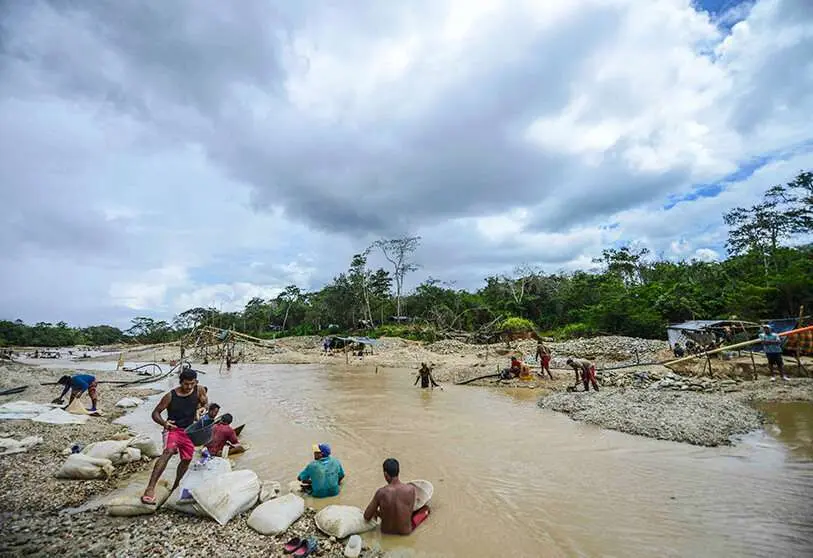Illegal mining: yet another human rights violation in Venezuela

The Mining Arc, located in the south of Venezuela, has become one of the main sources of the country's economy after the fall in oil production, a situation that mafias and armed groups have been able to take advantage of to strengthen their criminal activity. While the government of Nicolás Maduro argues that exploitation activities are taking place in an "orderly manner" and "with the least impact on the environment", an international mission created to analyse the situation in Venezuela has denounced that the population of the mines is subjected to continuous abuses.
The mission has decreed that, despite the military presence in the area, armed groups continue to operate openly in control of the mines and the populations, who, in turn, are subjected to multiple abuses ranging from the sexual exploitation of girls and women to murders.
In addition, the government is allegedly collaborating with criminal groups in some areas of the state of Bolivar, where the Orinoco Mining Arc is located.
The mission's report will be presented to the Human Rights Council, in which they will examine in depth the crimes against humanity of which Venezuela's military and police intelligence services are accused.

Furthermore, according to the OECD study on "Gold flows from Venezuela", "none of the government's stated objectives have been met; on the contrary, the Mining Arc is widely regarded as the centre of an uncontrolled and often violent experiment in the exploitation of resources, regions and communities".
On the other hand, the NGO FundaRedes has denounced that illegal mining activity in the area has caused "irreversible consequences" such as the destruction of at least 1,200 hectares of virgin forest in the state of Bolivar, a catastrophe for which it blames Maduro. According to them, these impacts on nature, known as "ecocide", are illegal or arbitrary acts that cause "serious, widespread or lasting damage to the environment".
In addition, the mission has indicated that "illegal groups are heavily armed and regularly enter into conflict with each other or with the authorities", also reporting the presence of the Colombian guerrilla group, the National Liberation Army (ELN).
In this context, the mission also denounced that the extractivist policy in the area has extended illegally "from the polygonal area of the Mining Arc and has reached protected areas such as the Canaima and Yapacana parks, the Paragua and Caura river basins, the Alto Orinoco Casiquiare biosphere reserve, the entire northern part of Amazonas state and the southern border of Amazonas with Colombia".
This situation has also led to the spread of criminal violence. According to SOS Orinoco, "mining in the south of Venezuela has become an activity imbued with a large organised criminal network that reaches all levels of political and military power. In addition to this type of violence, the human rights report reveals that macho and sexual violence is also affecting women in the areas, including women workers.

Although there is a predominance of men in the mines, there are many women working in the mines - including girls - but, as in other contexts, the differences between women and men are wide. In this sense, girls are employed to enter "through small open spaces to locate and open gold veins, manipulate the artisanal pulleys that raise and lower equipment, sandbags and stones into the mines, or work in the rivers to extract the gold with the panning machines".
Like the men, women have to pay dues to the "syndicate" but it is they who are sometimes forced to have sexual relations with the members of this organisation through threats, a practice also promoted by the criminal groups. Likewise, the care of minors in mining areas often falls to women and sometimes children are left alone, which facilitates their insecurity and increases the risk of suffering different types of violence, from sexual violence to labour exploitation.
Americas Coordinator: José Antonio Sierra








